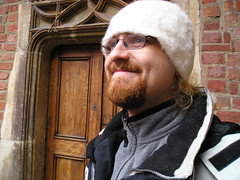What do you have to believe to be a libertarian?
Libertarianism is, in short, too narrow in forgetting to focus on foundational philosophical issues and, because of this, get things exactly backwards.This criticism is akin to many others. I find it disconcerting that the main group of people making this criticism are Objectivists. Ayn Rand, in one of her more moody moments, railed against libertarians for stealing her ideas, for being overly broad, for being disintegrated (a giant sin), and so on. She was particularly steamed at the Libertarian Party because, uhm, at the time, the Republicans REALLY needed to win, in her mind, to keep George McGovern from the presidency. Ho hum, diddly do. And a profound "Yawn."
I did some searching around, and came across this same debate on facebook.
A few things. First, it's ironic that Rand should be railing against anyone for stealing ideas. While she was original, you can find all sorts of precursors to her views in John Locke, in Frederic Bastiat, and in a whole host of other sources that she didn't bother to cite. One of the main criticisms of Rand, in fact, is her lack of footnoting and citing earlier sources that said just about the same things she said. But leaving that aside, here's my rejoinder to the Objectivist criticism of libertarianism, in a nut shell.
Libertarianism is broad and "lacks" foundations not because libertarians don't hold foundational views that would exclude many others, but because the word "libertarian" applies to the conclusion of an argument, and not the argument itself. For the sake of an argument, you can define your terms in special ways for special purposes. But when you are using the ordinary notion of "libertarian" you are referring to people who share the belief that government should be massively restrained (for whatever reason--including consequentialist and deontological reasons). More particularly, government's proper functions include (but are not limited to) national (self)defence, law courts, and police. Some libertarians, like Miltion Friedman and Friedrich Hayek, think the state should provide some social safety net. Other libertarians, like Murray Rothbard and Lysander Spooner, think we should have no government at all.
The Objectivist critique of libertarians is the same, in all essentials, to, say, a Catholic claiming that "Christians" are all confused because they don't all have the same metaphysical, epistemological, and ethical commitments. But of course they don't. "Christian," like libertarian, is a broader concept that captures a group of people who might have more particular beliefs about ethics, metaphysics, epistemology, and so on, including Catholics. This is why Objectivists, regardless of what they say, are libertarians.
I find it strange that libertarians should be saddled with this nonsense, whereas other political philosophies get a friendly pass. Consider. To be a conservative, you needn't follow Leo Strauss, or think Ronald Reagan was awesome, or that Christianity is the way to go. Roughly, all you need is to believe in low taxes, the family, and a smaller government. You don't have ultra-specific conservative views that claim to be the only true views about conservatism. To be sure, you have many people who argue that this or that path is the best path to conservatism, that this or that philosophy is the best way to ground and justify conservatism, but you don't have anything like the distaste the Objectivists have for the libertarians.
The same is true of liberalism. You needn't be a Rawlsian, or think Bill Clinton was the bomb, to be a liberal. You can believe all sorts of different things. So long as you think that we should be neutral on the good life, provide some amount of resources to allow each to live a life that each judges best, and place some emphasis on equality of outcome, you're a liberal. Some will call themselves Rawlsian liberals to make plain what they think is the right way to ground and justify liberalism. Others can call themselves other sorts of liberals. And that's fine.
I call myself a libertarian. I'm a strange sort of libertarian, however. I don't believe in natural rights as metaphysical facts. As far as I'm concerned, they're just legal entities with no status apart from the law. I don't agree with Rand on just about anything (although there is much that I agree with, and, for full disclosure's sake, I passed through Rand to get to where I am now). I take a dim view of deontological ethics in general, and any a priori approach to, uhm, anything.
Instead, I take a more-or-less Rawlsian approach to political philosophy. Take our intuitions about ethics, mix them up with some considered judgments, throw in historical data about how certain institutions operate, and see if you can't get "reflective equilibrium" between all of these views. For that reason, I call myself a Hayekian libertarian. Hayek, for those of you who don't know, thought that Rawls was just about exactly right in terms of method, and just about exactly wrong about the conclusions that he reached. The empirical date, said Hayek, just doesn't support a bloated role for the government. That is, even if it really is our responsibility to take care of our neighbour, we shouldn't look to government as the institution that realizes that responsibility. It will do a poor job of it.







